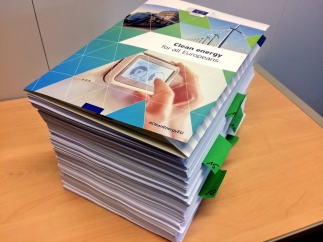Brussels Releases Power Mechanisms Report
The European Commission on November 30 published the final report of its electricity capacity mechanisms inquiry, including guidance on how such mechanisms -- some of which benefit gas-fired generators -- should be better designed.
The UK and some other countries introduced capacity mechanisms, for instance paying gas-fired (and some other) power plants that otherwise would stay offline, a premium so they remain on standby for when there are surges in demand. Some like France are considering the introduction of such a system. Uniper's CEO Klaus Schafer recently criticised Germany for not following France’s example (as featured in the latest NGW Magazine, issue 8).
The commission’s report still finds that some EU states have failed to adequately assess the need for a capacity mechanism before introducing one. This is despite its two interim reports on this subject, published in April 2015 and again this April.
Its three main conclusions are: capacity mechanisms must be accompanied by appropriate market reforms; the need for a capacity mechanism must be demonstrated; and such mechanisms must be fit for purpose and open to all capacity providers.

EU competition commissioner Margrethe Vestager (Photo credit: Nordic Cooperation Council / Johannes Jansson)
EU competition commissioner Margrethe Vestager said the latest capacity mechanisms report complements the commission's Clean Energy for All Europeans package of proposals, also released November 30, to make European electricity markets “more integrated and work better.”
"Capacity mechanisms need to match a problem in the market and be open to all technologies and to operators from other EU countries; they must not be backdoor subsidies for a specific technology, such as fossil fuels, or come at too high a price for electricity consumers,” added Vestager.
Going forward, the Commission said it will continue to work with EU states to bring schemes, identified as deficient, into line with EU State aid rules. Any new capacity mechanisms introduced from now on would be assessed in light of this latest inquiry, it added.

The commission's Clean Energy for All Europeans package of proposals was also released November 30 (Photo credit: EC)
Binding 30% EU energy savings by 2030
The EC's Clean Energy package -- as well as adapting renewable energy to targets previously announced -- also proposes to review the energy savings target to be reached by 2030 to a binding 30% EU level and includes a proposal to revise and simplify the EU Energy Efficiency Directive (EED) and European Performance of Buildings Directive (EPBD).
Revisions to the two directives would "significantly contribute to the competitiveness of European industry" (mainly insulation and flat glass) by boosting their market size by €23.8bn between now and 2030 in the EU, creating a building renovation market with a value of between €80-120bn by then, and requiring extra insulation work (roof insulation, window replacement, building system upgrade etc) in the construction sector of some €47.6bn by 2030.
Mark Smedley


